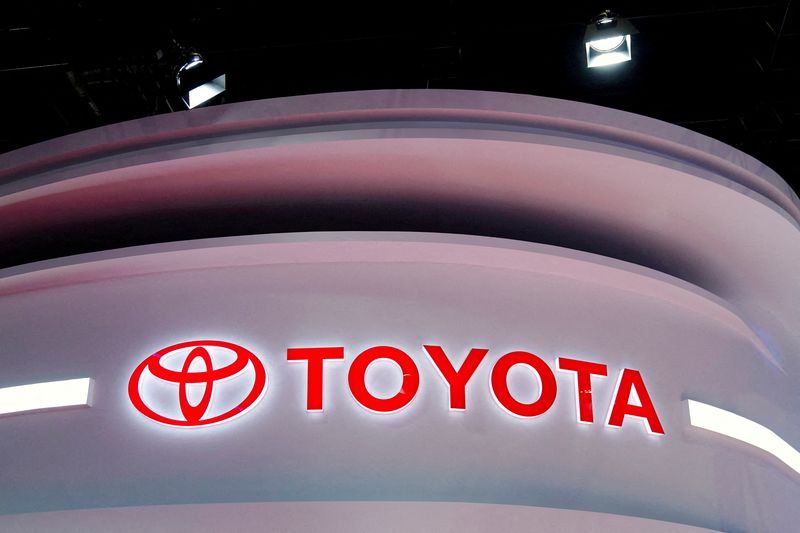TOKYO (Reuters) -Toyota Motor Corp on Wednesday cut its July global production plan by 50,000 vehicles as semiconductor shortages and COVID-19 parts supply disruptions continued to curb output.
The world's largest car maker by volume expects to make 800,000 vehicles next month, it said in a statement.
"As it remains difficult to look ahead due to the shortage of semiconductors and the spread of COVID-19, there is a possibility that the production plan may be lower," the Japanese company said.
Toyota and other car makers continue to struggle with supply-chain disruptions and component shortages caused by the COVID-19 pandemic including those resulting from recent lockdowns in China.
Automakers are also having to compete for limited semiconductor supplies with other manufacturers such as consumer electronics device makers.

Toyota stuck with its annual global production target of 9.7 million vehicles, although the company signalled in May that supply chain disruptions could eventually force it lower that number.
The automaker on Wednesday also expanded production halts in Japan next month at plants that make vehicles, including its GR Yaris subcompact and bZ4X electric SUV.